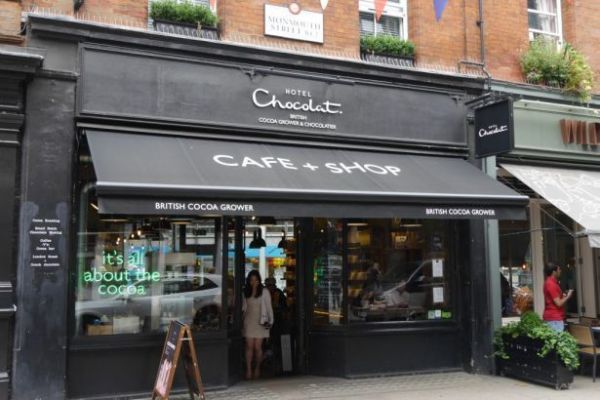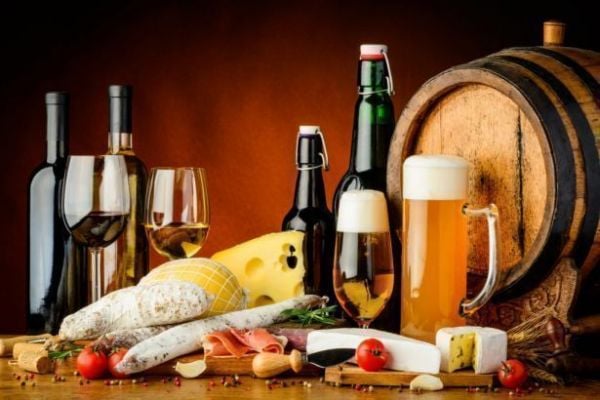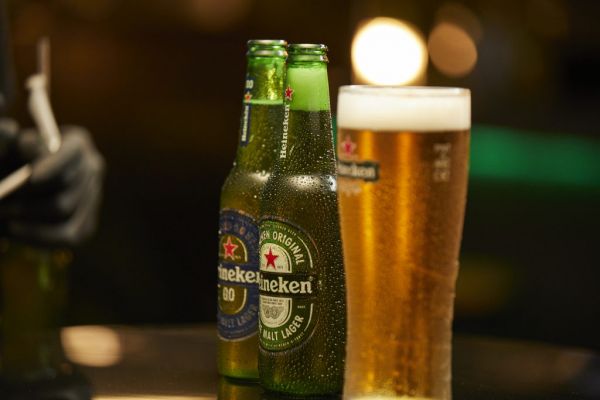Ross Golden-Bannon is restaurant critic for the Sunday Business Post and editor of Food & Wine magazine, and now he has self-published a book, How to Write About Food. Maggie Armstrong meets a man with a mission, and a message.
oss Golden-Bannon, who eats out too much, says that the two things that annoy him most about Irish restaurants are customer service (“shockingly, shockingly bad”) and food-sourcing. “Restaurateurs have got quite adept at using language that makes it sound as if they’re doing really good-quality Irish food, but, in fact, often they’re not. It’s cheap, it’s not made fresh, it’s not seasonal, it’s not local – some of it isn’t even Irish.” And yes, he does agree that this makes the places doing a good honest job stand out all the more.At the moment, he is just furious about food labelling, too. “A good example is ‘Dubliner’ cheese. The milk – I believe it comes from Cork – it’s certainly not from Dublin. It just shows how the marketeers have got hold of the programme. I’ve seen it on the shelves in New York and San Francisco beside artisan French and Italian cheeses. It’s a complete nonsense. Government is cock-a-hoop about those [mass-produced] products. In fact, it’s a cheat, it’s a lie.” “But it’s quite a good cheese, and they don’t use additives,” I plea. “That’s hardly the point.” Subterfuge in cheddar marketing is, I fear, down on the list of our worries about Irish food just now, but when I meet the food critic in the comfortable basement bar of Dublin’s Fallon & Byrne (which does, by the by, the best muffins in Ireland), the horse-meat scandal has not yet broken. His point about lying to the consumer is deeply prescient, therefore. “You just have to process something a little bit to call it Irish. We really need to look at how we label things,” he fumes. He is right.Golden-Bannon is well placed to talk about these matters. The forty-something Dubliner started his career in politics, working as a Labour Party spin doctor in the House of Commons, and became restaurant critic for the Sunday Business Post in 2000. (He writes, on the day that I write this, of Dubliner cheese ‘as a symbol of all that is wrong in the Irish food world’, and once more condemns its ‘marketeers’ – clearly, a burning issue for him.) In 2008, he became editor of Food & Wine magazine, and with that, a prolific tweeter. He is a campaigner for marriage equality, and you might have heard him on RTÉ Radio, broadcasting excitedly from the Food & Wine Christmas Show. He is that kind of fellow, a proverbial big child and warm-hearted darling of the media, with the beardy good looks of an old-fashioned bon viveur. “I’ve ended up with the two plum jobs in food in Ireland, I suppose,” he gloats (only a little), as his latte and plate of chocolate cake, cookie and whipped cream arrive. As a factotum for F&W and the SBP, he is required to eat out up to three times a week. Quite demanding. “Is food-writing important?” I ask him. “Good food-writing is. There’s a lot of websites out there ... TripAdvisor is a good example of some very bad and damaging writing about food and the hospitality sector. “Like one of my big hates is the word ‘like’. You can’t just ‘like’ something. That’s absolutely meaningless, and that is a word you find a lot on those sites. All they’re saying is, ‘Joe Soap from God-knows-where likes this hotel or that meal,’ and doesn’t say why they like it, what was good, what was bad.” I’ll presume that ‘good’ and ‘bad’ are okay words to use if I ever try my hand at writing for F&W. We are meeting because he has just written an e-book, How to Write About Food – the top 50 writing bloopers to cross an editor’s desk, in which he throws down the gauntlet to his contributors by saying that ‘hate’ was his premise for authoring it.The opening reads, ‘If there’s one thing that will shift an editor from their chair to a stomping rant, it is bad copy [the file that an editor is sent].’ That is fair. Bad copy to an editor must be like the wilting leaves, bruised potatoes or fatty meat that a chef has to turn into beautiful dishes. The e-book is self- or ‘vanity’ published, as they used to say in the industry. Golden-Bannon does not like to see it as a vanity project, although it opens with the question, ‘So how do you make beautiful copy?’ and lets on that it has the answers. Is your own copy beautiful, Ross? He bursts out laughing. “I always strive to finesse my words to make it beautiful.”The book is, it says, ‘a highly personalised polemic which some will find offensive’. Actually, I did find it somewhat offensive, but less for its pompous tone than for the woeful grammatical mistakes that the subeditor, whom he thanks in the acknowledgements, let through. The book strives to correct bad grammar and offer instruction on how to write, and so I feel justified in pointing out sentences that contain errors, such as, ‘It is an odd phenomena [sic],’ ‘Any one can email an editor now, and quite frequently do [sic],’ and ‘Much of the basic journalistic practises [sic] were outsourced.’ Barack Obama is spelled ‘Barak Obama’, and ‘Meave Binchy’ like so. The 50 ‘bloopers’ that he outlines are more like ramblingly obvious tips for food writers (don’t mismatch your language, order affordable dishes, don’t mix up fact and opinion), and can we really trust the judgement of a food critic who adds ‘technology as an enemy’ to his 50 diktats inside an e-book that can only be read on a screen? Never mind. Golden-Bannon is more than just a feared food journalist now. He is a writer. He is in the middle of his second book, which he describes as a “foodie detective novel”. And his current book could be useful for any restaurateur who wants learn how to catch out a scurrilous journalist on a legal or stylistic point. (See the way I just started a sentence with ‘and’? According to this book, that’s not allowed.)One of its better observations is that ‘many people writing restaurant reviews take on the tone of an over-educated minor aristocrat’. He’s right, of course. There is a certain pompousness that often seems to go with the job. So tell us, Ross, why is food-writing so bourgeois? “I take a very political view of food-writing. I think there’s a perception of it as bourgeois, which is dangerous, because it marginalises the politics of the plate. Most politicians dismiss artisan food as a middle-class thing. In Spain, in France, in Italy, food is something of the peasant, and they are as passionate about their local food as Irish people are about their GAA team. “Here what happens is, small local businesses are ignored when they could be an avenue for creating local productivity and local economic growth.” He is involved in a campaign with Darina Allen, he tells me, to improve the kitchen in the Dáil restaurant by bringing in more artisanal Irish suppliers. “The government has an enormous food spending budget, from schools to prisons to hospitals to government departments. Imagine if even a small percentage of that had to be from an artisan supplier. Imagine the enormous boost they would give to that sector.” What legislation would he like to effect? “I’d like to see a move away from the obsession with mass production of food in Ireland for export. Small and medium-sized enterprises make up 80 per cent of the GDP, so we should be talking to the small businesses.” I’m keen to know what he makes of Irish restaurant critics. Does any soft corruption go on in the way of a free meal here and a favourable write-up there? Go on, tell! But Golden-Bannon is as discreet as an undercover diner with this one. “Some of it’s a bit rickety, and that’s something we need to be careful of, but mostly I think they’re an honest lot.” Blooper number 50 in his book is a warning against writing for free. He refused to go on RTÉ’s The Restaurant for that reason. The producers of the TV show, which invites a restaurant critic to assess food cooked by a celebrity, told him that there was no fee, but that he would receive a free meal. ‘I explained that although I had a modest income, I was not yet starving,’ he writes in the book. But you don’t p
ay all your contributors to Food & Wine, do you, Ross? “I have a strict budget I need to keep to. I err in favour of trying to pay people,” he says, adding that he “covers their costs”, but I assume that the people writing for him aren’t starving either. We didn’t agree on the cheddar, and we won’t agree on this one. When asked what are his favourite restaurants, he names two of the most expensive in the country: Chapter One and Thornton’s. God, he must have a good life. Does he? “Oh, wow. Everybody who isn’t doing it thinks it is, and those of us who are doing it aren’t so stupid as to complain about it.”Is it a healthy life? “No. It’s difficult.” He mumbles something about marathon training, and I feel for him. From my brief experience dabbling with the form, food-writing is like acting or extreme sports, a profession for which dedication can mean self-destruction. He loves a good salad – “the Cinderella of most restaurants” – dreamily citing a shredded-chicken number that he ate at the new Hatch & Sons on Stephen’s Green, which is serving Irish ingredients “right down to the mayonnaise, made from Irish rapeseed oil”. Golden-Bannon is a charming and thoughtful person whose book doesn’t do him justice. His views on the Irish hospitality industry are more interesting than How to Write About Food might suggest, and he is far from the stereotype of middle-aged food critic. As the bar fills up around us for lunch, he takes a reluctant forkful of chocolate cake and leaves the best part untouched. “Should I get the bill?” he asks, and you can tell that he is used to doing this. I tell him not to worry, and he quickly concedes, “Okay. You can claim it back from them?”
How to Write About Food – the top 50 writing bloopers to cross an editor’s desk (Kindle edition) is available on Amazon: http://www.amazon.com/How-Write-About-Food-ebook/dp/B00AP2SM1M. $3.68









